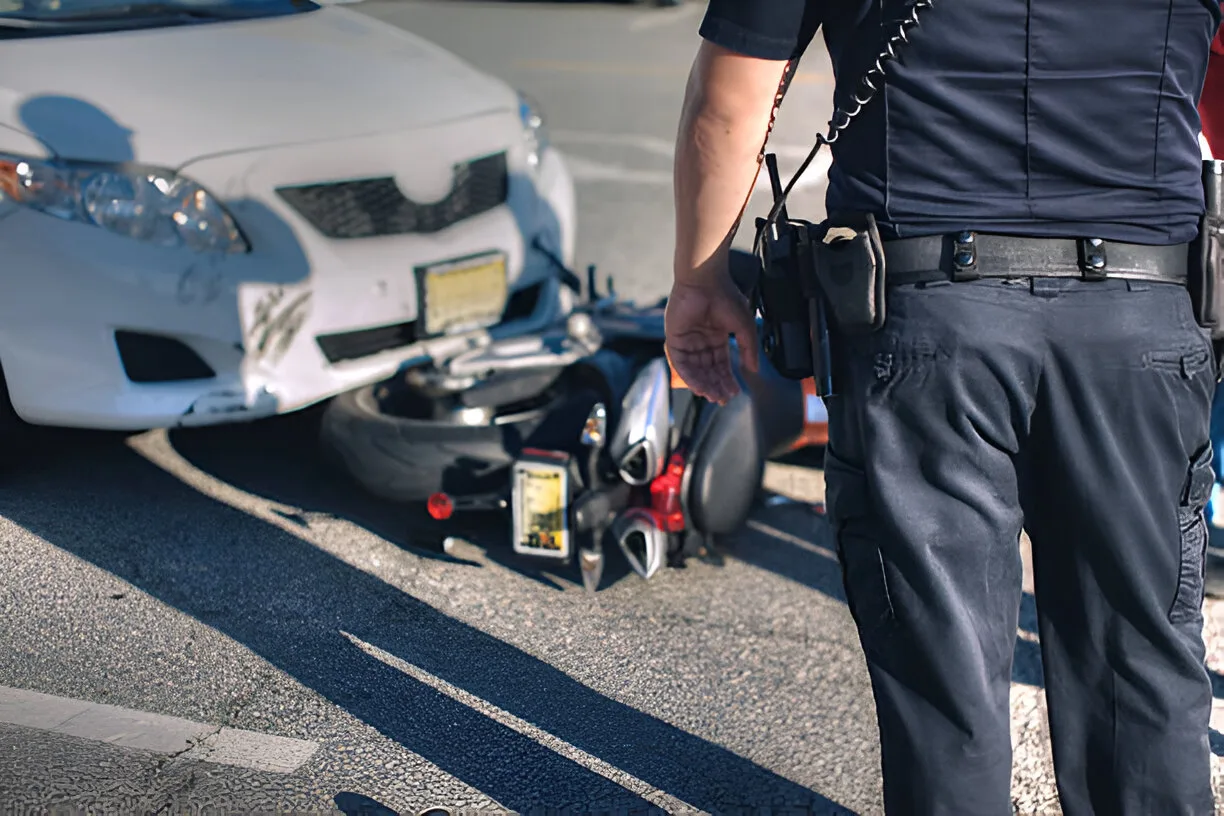Florida offers scenic roads, warm weather, and year-round riding conditions that attract thousands of motorcycle enthusiasts. However, along with the freedom of the open road comes the responsibility to understand and comply with state safety regulations. One of the most commonly debated topics among motorcyclists is Florida’s helmet law.
If you’ve been injured in a motorcycle accident, having an experienced motorcycle accident attorney on your side is crucial. They understand the unique challenges riders face and can fight for the compensation you deserve. From negotiating with insurance companies to representing you in court, a skilled attorney helps protect your rights every step of the way.
While Florida does not require all riders to wear helmets under certain conditions, understanding the legal requirements, exemptions, and implications is essential—not only for safety but also for protecting your rights in the event of an accident. In this article, we’ll break down Florida’s motorcycle helmet laws, explore safety and legal consequences, and help riders make informed decisions.
Understanding Florida’s Helmet Requirements
Florida law takes a hybrid approach to motorcycle helmet usage. Unlike some states that mandate helmet use for all riders regardless of age, Florida provides an exemption under specific conditions.
Who Must Wear a Helmet
Under current state law, all riders and passengers under the age of 21 are required to wear a helmet that meets federal safety standards. This rule applies regardless of the rider’s insurance status or experience level. The helmet must be properly secured and worn at all times when operating or riding on a motorcycle.
Law enforcement can issue citations to those under 21 who ride without helmets. More importantly, in the event of an accident, failure to wear a helmet can significantly increase the risk of serious injury and may affect any potential insurance or legal claims.
Helmet Exemptions for Riders 21 and Older
Riders aged 21 and older are exempt from the helmet requirement, provided they meet one specific condition: they must carry an insurance policy that offers at least $10,000 in medical benefits coverage for injuries sustained while operating or riding a motorcycle.
This exemption does not mean helmets are discouraged. Instead, the law gives adult riders the freedom to choose, assuming they accept financial responsibility for any injuries that may occur. However, failure to meet the insurance requirement while riding helmetless is a violation of state law and can result in fines or legal consequences.
Required Helmet and Additional Safety Gear Standards
Even when a helmet is worn, not just any headgear qualifies under Florida law. The helmet must meet specific criteria and be manufactured in compliance with established safety regulations.
What Makes a Helmet Legal in Florida
To be legally recognized, a motorcycle helmet must meet Federal Motor Vehicle Safety Standard (FMVSS) 218. This includes structural integrity, shock absorption, and secure strap placement. Helmets meeting these standards typically have a Department of Transportation (DOT) sticker on the back.
Riders should be cautious when purchasing novelty or non-compliant helmets that may look stylish but fail to provide actual protection—or meet legal standards. In the event of a crash, an uncertified helmet may not only increase injury risk but also complicate legal proceedings and insurance claims.
Eye Protection Requirements
Regardless of whether a helmet is worn, all riders are required to use eye protection unless the motorcycle is equipped with a windshield. Acceptable forms of eye protection include goggles, shatterproof glasses, or a helmet with a built-in face shield.
The purpose of this law is to ensure that riders maintain clear vision and control during operation. Debris, insects, wind, and other airborne hazards pose serious risks to rider safety, especially at higher speeds.
Why Helmet Laws Matter—Safety Insights
While Florida law allows riders over 21 to choose whether or not to wear a helmet, that decision carries significant consequences. Beyond legal compliance, helmets play a vital role in rider safety and survival rates during accidents.
Impact on Fatalities and Head Injuries
Numerous studies and accident reports have shown that motorcycle helmets significantly reduce the likelihood of death or severe head trauma during crashes. Helmets are estimated to be approximately 37% effective in preventing fatal injuries to motorcycle operators and 41% effective for passengers.
After the partial repeal of Florida’s mandatory helmet law, some studies documented an increase in motorcycle-related deaths and traumatic brain injuries—especially among riders not wearing helmets. These statistics reinforce the critical role helmets play in protecting against catastrophic outcomes.
Comparative Risks—Helmet vs. No Helmet
Wearing a helmet can dramatically reduce the risk of:
- Skull fractures
- Traumatic brain injuries (TBIs)
- Facial lacerations
- Neck trauma
In contrast, riders without helmets are more likely to experience permanent disability, require extended medical care, and face limited recovery options—both physically and financially. For many, the benefits of helmet use far outweigh the risks of riding without one.
Legal and Insurance Implications of Helmet Use
Choosing not to wear a helmet—while legal under specific circumstances in Florida—can still influence the outcome of legal or insurance claims following an accident. Florida’s helmet laws can impact both your safety and legal rights. Accident Medical Group educates riders on state regulations while offering access to trusted medical care and legal resources if you’re involved in a motorcycle accident.
Consequences for Not Wearing a Helmet
If a rider who is required by law to wear a helmet (e.g., under 21 or lacking the proper insurance coverage) is caught riding without one, they may face:
- Traffic citations
- Fines
- Points on their driving record
- Suspension of motorcycle endorsements in severe cases
In addition, riding without a helmet when legally required can be cited as a factor in personal injury claims or lawsuits, particularly if the injuries involve the head or neck.
How Helmet Use Impacts Injury Claims
Florida operates under a comparative negligence rule. This means that if a rider is found to be partially at fault for their own injuries, their compensation may be reduced by the percentage of fault assigned to them.
In practical terms, if a rider who was not wearing a helmet suffers a head injury in an accident caused by another driver, the court may still hold the rider partially responsible. Even if the other driver is primarily at fault, the rider’s choice not to wear a helmet could decrease the compensation they’re eligible to receive.
This potential reduction in damages is often a major consideration in both courtroom decisions and out-of-court settlements. Insurance adjusters may argue that some injuries could have been avoided or minimized had the rider worn a helmet.
Debunking Common Myths About Helmet Laws
Myth: Helmets Cause More Injuries Than They Prevent
This myth is not supported by evidence. Helmets are rigorously tested to prevent skull and brain injuries, and the vast majority of studies support their effectiveness in reducing both fatalities and serious trauma.
Myth: Helmet Laws Violate Personal Freedom
While personal freedom is a valid concern, helmet laws are primarily focused on public safety and reducing the financial and medical burden of motorcycle accidents on state resources and healthcare systems.
Making an Informed Choice
Ultimately, wearing a helmet in Florida is a choice for many riders—but it should be an informed one. Riders should consider:
- Their riding experience
- The type of roads they travel
- Their speed and distance
- The likelihood of encountering reckless drivers
- Their financial ability to absorb medical costs
Investing in a certified, high-quality helmet not only protects your head but also strengthens your legal position in case of an accident. Choosing not to wear one may seem like a personal right, but it can have far-reaching consequences—both physically and legally.
Final Thoughts
Motorcycle riding in Florida offers freedom and exhilaration—but with that freedom comes responsibility. Understanding and complying with Florida’s helmet laws helps protect your health, your finances, and your legal rights. Whether you choose to wear a helmet or not, it’s important to make that decision based on facts, not myths or assumptions.
Need help understanding your rights as a motorcyclist in Florida? Reach out to our team today.
FAQs – Florida Motorcycle Helmet Laws
1. Do all motorcyclists in Florida have to wear a helmet?
No. Riders over 21 can legally ride without a helmet if they have at least $10,000 in medical insurance coverage. However, those under 21 must wear a helmet at all times.
2. Is eye protection required if I’m not wearing a helmet?
Yes. Florida law mandates eye protection for all riders unless the motorcycle has a windshield that meets state visibility standards.
3. Can riding without a helmet affect my insurance claim?
Yes. Not wearing a helmet can reduce your potential compensation, especially if your injuries could have been minimized by helmet use. Florida’s comparative negligence laws apply.
4. What is the penalty for violating Florida’s helmet law?
Violations may result in fines, traffic citations, and could impact your driver’s record—especially if you don’t meet the required insurance coverage.
5. Do passengers also have to follow helmet laws?
Yes. Passengers are subject to the same rules—those under 21 must wear helmets, and those over 21 must have qualifying insurance if they choose not to wear one.





